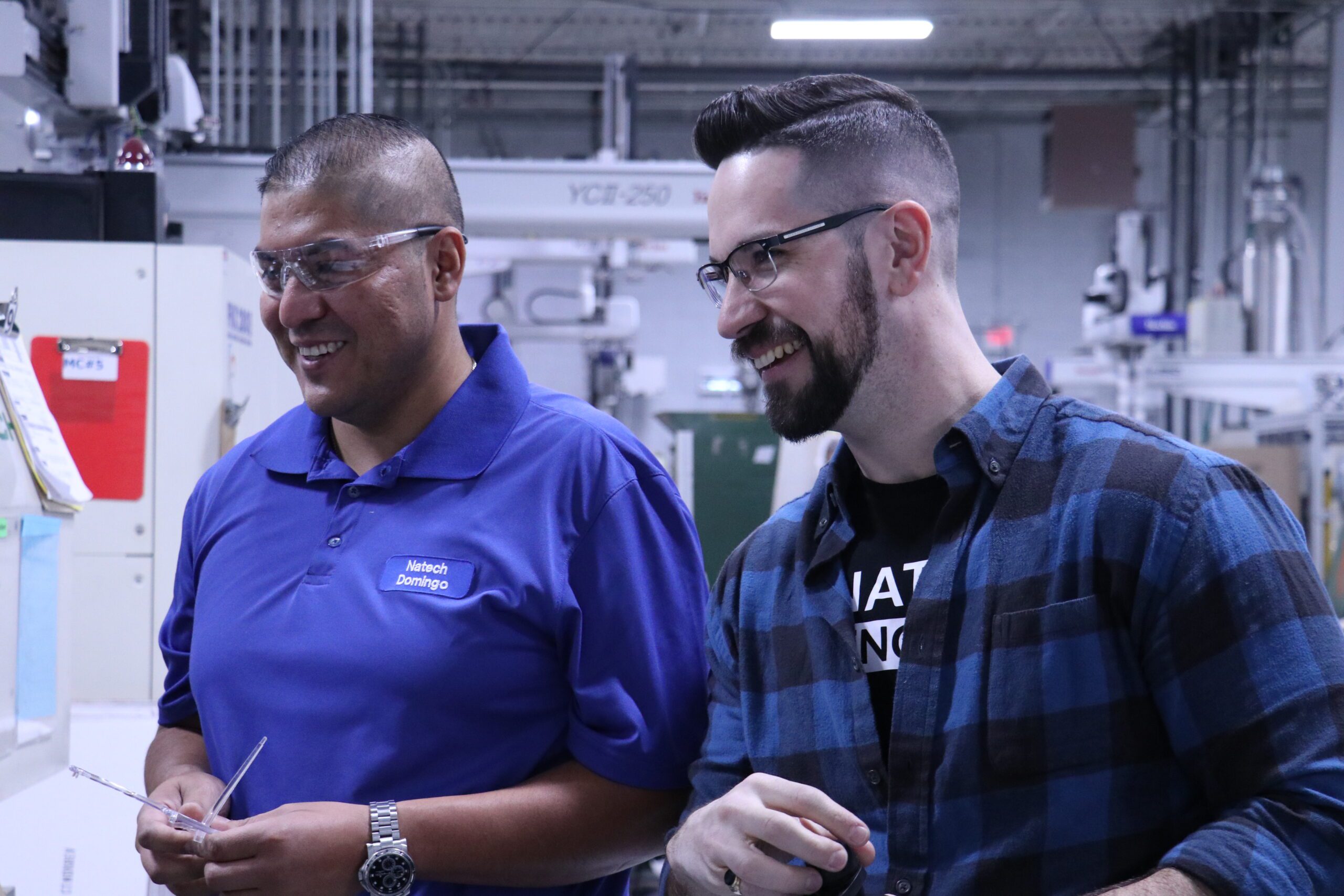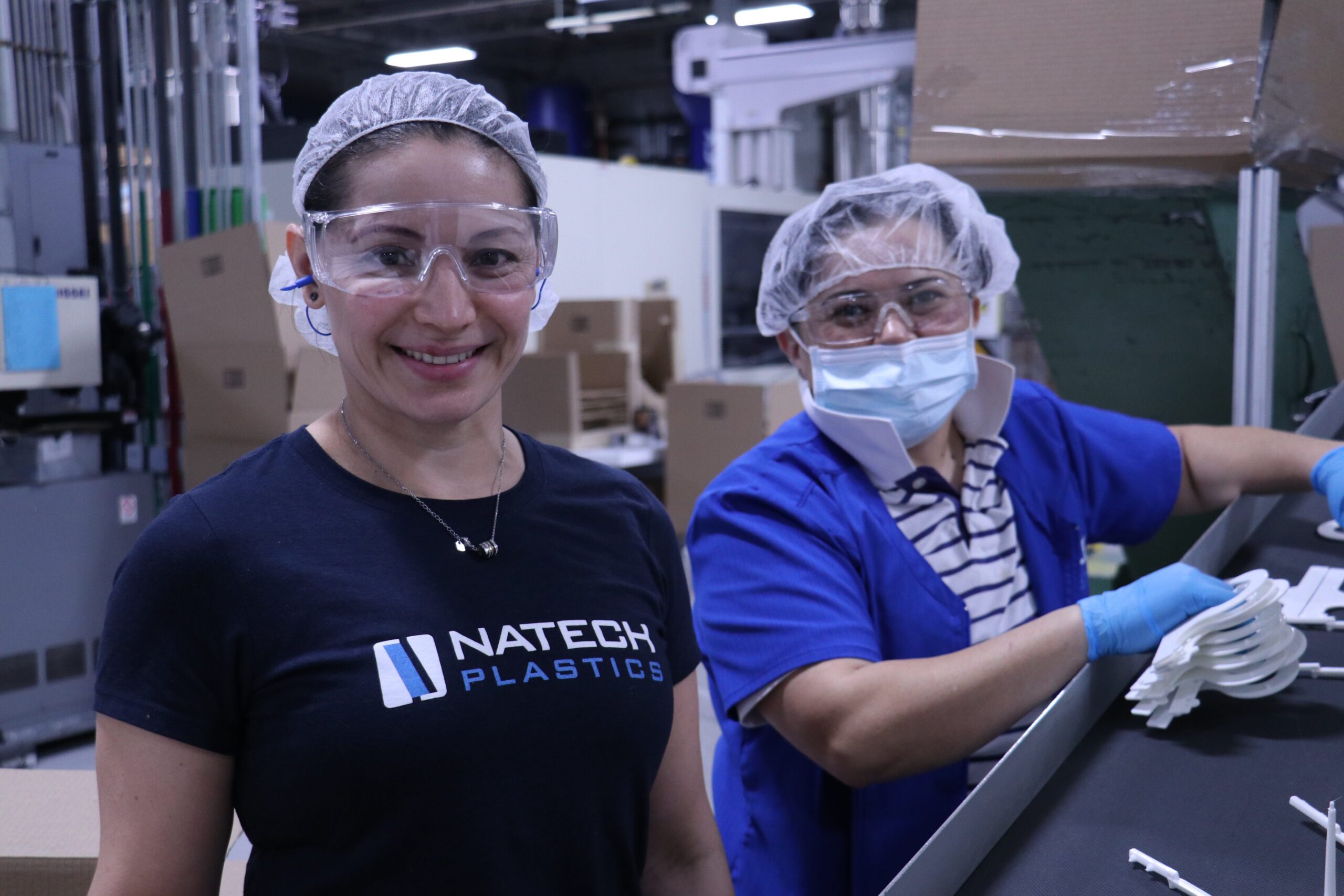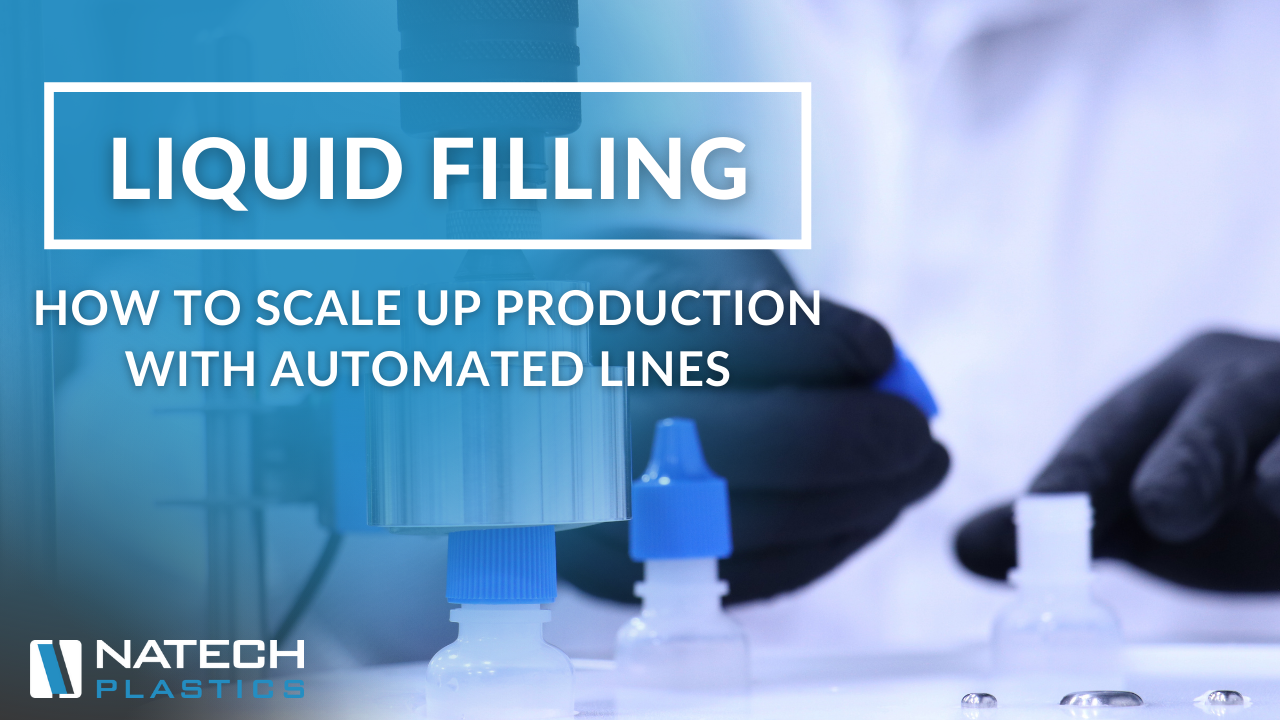Project Engineer Lori Jockers Panels at the SUNY New Paltz 7th Women’s Leadership Summit
Our Project Engineer, Lori Jockers, was invited to panel at the SUNY New Paltz Women’s Leadership Summit. Lori contributed to setting up the first Women’s Leadership Summit.


She paneled alongside 28 other SUNY New Paltz alumnae and leaders, who attended to offer advice to students and faculty on accelerating and achieving professional goals. The attendees had a variety of backgrounds including liberal arts and sciences, education, fine and performing arts, and science and engineering. Here is Lori’s full Q&A:
1. What should students be doing right now that will help them land their first jobs?
Getting internships while studying is a great way to prepare for a full-time job after graduation. Many companies rely on candidates to have some engineering in industry background and having early exposure to industry will set you apart from other candidates. When I was 19, SUNY New Paltz connected me with the HVAMC (Hudson Valley Advanced Manufacturing Center) where I had my first exposure to 3D printers. At every job since then, I have worked with 3D printers and was able to provide insight and help because I already had that experience at a young age.
You should stay present, focus on your schoolwork, don’t get stressed because a job will come to you eventually. Keep your grades up and make the most of your college experience.
2. What advice would you give to students?
Knowing yourself, your talent, and your worth is huge. As an engineer, I offer pretty awesome mathematical, problem-solving, and creative skills that not everyone has. It’s especially important for women to stand up for themselves and be able to have the financial freedom and power they deserve.


3. What is your work culture like at Natech Plastics?
In terms of team culture, Natech is very different from previous jobs I’ve had. I was used to having older generations in command. Sayings like, “That’s the way we’ve always done it,” was common. Natech is different because one of our core values is continual improvement, so we always strive to find ways to improve and implement them. It’s exciting and comforting to be a part of a team where new ideas are encouraged and respected.
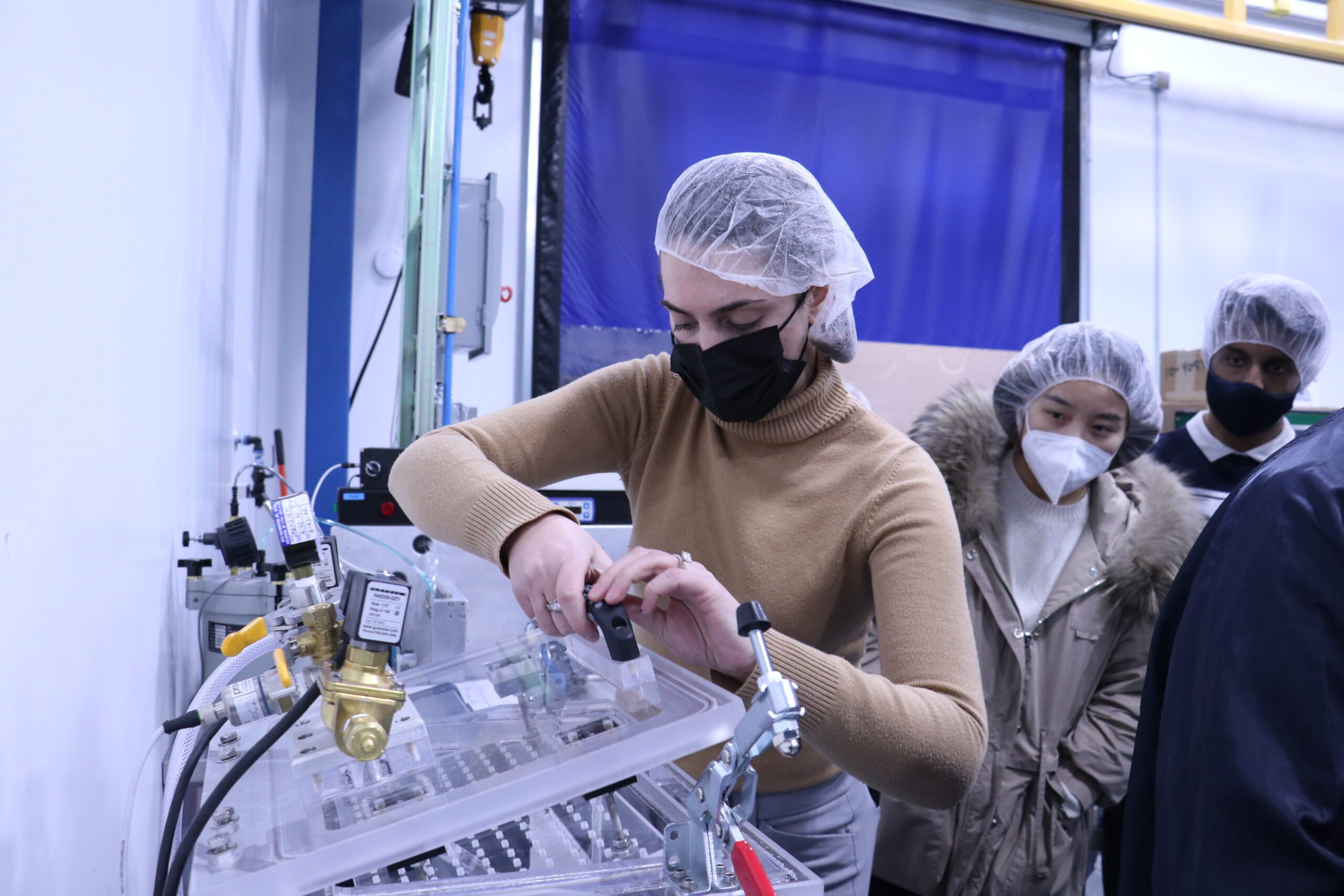

When I let them know that my skills in 3D modeling were not as strong as I thought, the company paid for me to take a Solidworks training. I feel like it made me a much more efficient designer. I’m grateful Natech gives me the tools to become a better engineer.
4. What is your day-to-day like at Natech Plastics?
I work with clients to design fully functional injection molded parts. We usually see the project from start to finish and help clients through every stage in between. I was also a part of developing a filling and sealing application responsible for detecting COVID. Being able to help during a global pandemic made me feel really proud. I’m grateful to have helped others.
Most of the projects we work on at Natech are for the medical and diagnostics industries, so I’m glad I can be a part of something that helps detect diseases early and can potentially save their life, or at least assist in the steps to improve their health.
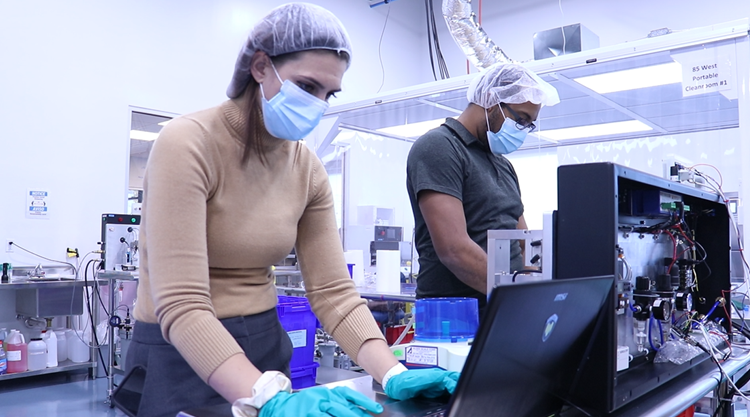
5. Do you have any resume advice?
Add a hobby or interest that sets you apart from the rest. On my resume, I added that I was a New Paltz cheerleader and I was able to connect with an engineering manager through my interview because he was also a cheerleader in college. Creating connections and networking is important.
6. What has New Paltz done for you?
New Paltz has given me everything. It gave me my best friends, helped me find a love for engineering, provided me with resources and connections for internships, and helped me find my first full-time job through the career resource center. I also met my fiancé in the mechanical engineering department.
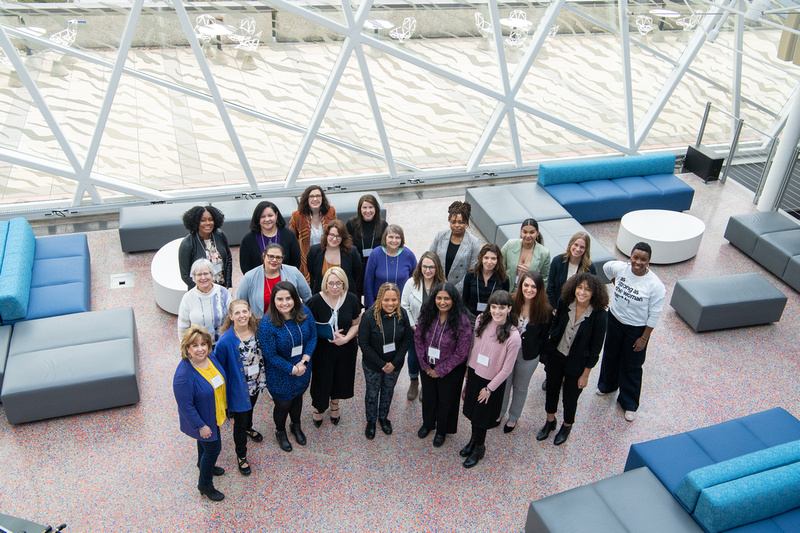
7. How did you go from art to engineering?
Ever since I was a kid, I’ve always been a creative person. I was always drawing, coloring, and building. My favorite classes in school were always art and math classes. I’ve always had a real strength with numbers, calculations, and problem solving. I was an engineer before I even knew what an engineer was.
No one ever told me to pursue engineering growing up. I think it could have been a sexist part of our society in the 90s and early 2000s. I understood that I could become an artist, a teacher, or an interior designer/decorator. I was always given arts and crafts tools like glue and scissors, but had I been given a hammer and power drills, who knows what I could create?!
But I’m an engineer now. I get to design some really cool things.
I researched jobs that linked math and art and learned about product design and design engineering. New Paltz didn’t have design engineering, but they were starting a mechanical engineering program that had design courses available. I took some courses and fell in love, while maintaining my creative passions through my art studio minor.

